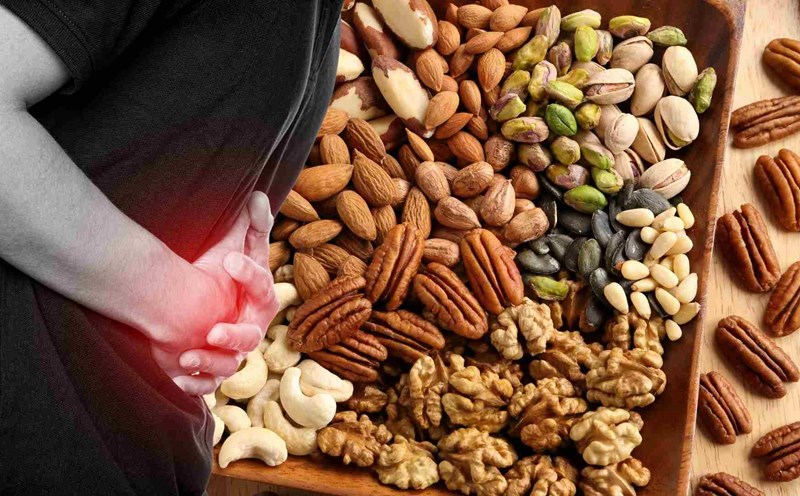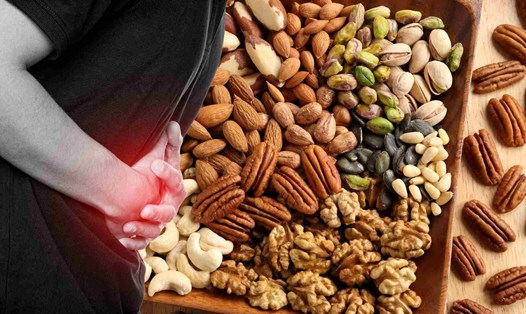Walnut
Walnuts contain high levels of omega-3 and polyphenols, which help reduce non-alcoholic fatty liver (NAFLD). A study published in the international liver magazine shows that walnuts often have better liver function than the group that does not eat.
Omega-3 helps reduce inflammation, improve insulin sensitivity and support effectively detoxify liver.
Eat directly or add salads, yogurt to increase nutritional value.
Almonds
Almonds are rich in vitamin E, a powerful antioxidant that helps reduce oxidation stress and protect liver cells from damage. According to research from the National Institute of Nutrition, adding almonds to the diet helps reduce the level of enzyme ALT and AST, two indicators reflect liver damage.
Eat almonds 10-15 seeds daily or use sugar-free almonds to replace processed butter.
Chia seeds
Chia seeds contain soluble fiber, omega-3 and plant protein, help control weight and reduce fat accumulation in the liver. Fiber from chia seeds helps reduce bad fat absorption and improve the metabolism of the liver.
Can soak chia seeds in water or yogurt for easier digestion.
Flaxseed
Flaxseeds are rich in lignans and ALA fatty acids (Alpha-linolenic acid), helping the liver effectively and reduce inflammation.
According to the Journal of Nutrition Medicine, Lignan compounds in flaxseeds can help reduce the risk of liver damage and improve metabolic function.
How to use: Grind flax seeds before use, sprinkle on smoothie or oatmeal.
Pistachios
Pistachios are rich in antioxidants, vitamin B6 and potassium, which helps protect the liver from oxidation damage. Eating pistachios often helps reduce the risk of fatty liver disease and improve cardiovascular health.
Should be eaten directly or used as a healthy snack.
Sunflower seeds
Sunflower seeds are abundant Vitamin E, which helps reduce inflammation and protect the liver from free radical damage.
According to research published in the Journal of Nutrition and Metabolism, vitamin E from sunflower seeds helps reduce ALT levels and improve liver function in people with fatty liver.
Usage: Choose sunflower seeds without salt, served with salads or smoothies.
Pumpkin seeds
Pumpkin seeds contain zinc, magnesium and antioxidants, helping to enhance the process of liver detoxification and reduce the risk of cirrhosis. According to the British liver organization, zinc from pumpkin seeds help maintain liver enzyme balance and enhance immune function.
Pumpkin seeds are used as snacks or added to soup, curved to increase flavor.











